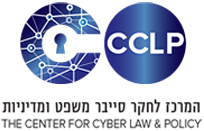 Nordic Centre for Internet & Society
Nordic Centre for Internet & Society
Christoph Lutz is an associate professor at the Nordic Centre for Internet and Society, BI Norwegian Business School (Oslo). His research interests are digital and social media, with a particular emphasis on their social implications in terms of privacy and participation. With a background in sociology and a PhD in Management from the University of St. Gallen (Switzerland), Christoph has become increasingly involved in researching the digital economy, including social aspects of the sharing economy, the gig economy and social robots. His work has been published in major journals in communication, information systems and business/management research.
Abstract:
Ethical, Legal, and Social Issues of Social Robots: Findings from Expert Workshops
Introduction and Literature Review
Social robots are increasingly employed in industry, healthcare, and in households (Bekey, 2012). The application of social robots comes with numerous benefits. Therapeutic robots, for instance, can alleviate daily tasks for older patients and help doctors monitor their patients’ recovery (Beane & Orlikowski, 2015). Assistive robots in autism therapy facilitate the communication between physicians and
This contribution aims at identifying key legal, ethical, and social issues (ELSI) of social robots, particularly in therapy and education, and at exploring solutions to these issues. To do so, we draw on data from the Workshop Series on the Ethical, Legal and Social Issues of Robots in Therapy and Education. Between 2015 and 2017, researchers from different disciplines and practitioners participated in structured discussions on ELSI and solutions. Here, we summarize the key findings of the workshops, addressing two research questions: What are the key ELSI of social robots, as perceived by experts? What solutions may help overcome these challenges?
Methods
Starting as a standalone workshop in 2015, the workshop turned into a workshop series, where participants discussed pressing ELSI of social robots in solution-oriented roundtables. Three additional workshops to the 2015 workshop were held in 2016 and 2017: one in Barcelona, Spain, as part of the New Friends 2nd International Conference on Social Robots in Therapy and Education in November 2016; another in Yokohoma, Japan, as part of the International Symposia in Artificial Intelligence (isAI) in November 2016; and a final one at the Edinburgh Center for Robotics, Scotland, as part of the European Robotics Forum in March 2017. To recruit participants from different backgrounds, a call for papers targeting engineers, legal practitioners, psychologists, ethicists, philosophers, and cognitive scientists was distributed through social media, university channels , and other channels, including mailing lists (e.g., eurobotics, ECREA, AoIR) and word-of-mouth. Two websites were created and 43 participants across various fields took part in the four workshops. With the consent of the participants, the workshop discussions were recorded and analyzed.
Preliminary Results
Preliminary analysis of the data indicates five main ELSI: 1) privacy, 2) legal uncertainty, 3) autonomy and agency, 4) impact of social robots on employment, 5) human-machine interaction and dehumanization. In the further analysis and reporting of the paper, we discuss both these five challenges and solutions to them in depth, outlining sub-issues and sub-discourses.





